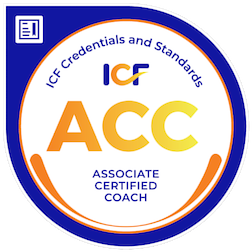Leadership in 2025: challenges and strategies for employee retention and motivation
In 2025, leaders will face a variety of new challenges. The world of work is changing rapidly, and to be successful, leaders must be flexible, adaptable and forward-thinking. In this article, we highlight the key challenges that leaders will face and provide practical tips for promoting employee engagement and motivation.
Challenges for leaders in 2025
- Technological change and digitalisation The ongoing digitalisation and use of artificial intelligence (AI) is fundamentally changing work processes. Leaders must continuously educate themselves and prepare their teams for the new technologies. This includes implementing new software solutions, automating routine tasks, and using data analysis to make decisions. Managers must also ensure that their employees develop the necessary digital skills to keep pace with these changes.
- Remote work and hybrid working models The pandemic has shown that remote work and hybrid working models work. Managers must learn to lead teams effectively, even when they are physically dispersed. This requires new communication strategies and trust in the self-organisation of employees. Tools such as video conferencing, project management software and virtual collaboration platforms are becoming increasingly important. In addition, managers must foster a corporate culture that supports flexibility and personal responsibility to ensure employee productivity and well-being.
- Diversity and inclusion A diverse and inclusive corporate culture is not only the right thing to do, it also makes good business sense. Managers must actively work to promote diversity and create an inclusive work environment. This means taking deliberate measures to recruit and promote employees from different backgrounds and ensuring that all employees have equal opportunities. Training on unconscious bias and promoting open communication are also crucial to creating an inclusive work environment.
- Sustainability and social responsibility: Companies are under increasing pressure to act sustainably and in a socially responsible manner. Leaders must develop strategies to integrate environmental and social aspects into corporate objectives. This can be done by implementing environmentally friendly practices, reducing the carbon footprint and supporting social projects. Leaders should also communicate transparently about the company's sustainability goals and involve employees in these efforts.
- Value-based leadershipValues play a central role in modern leadership. Managers must define clear values and live by them to create a strong corporate culture. This includes integrity, honesty, respect and responsibility. Value-based leadership fosters employee trust and loyalty and helps create a positive work environment where all employees feel valued and respected.
Strategies for employee retention and motivation
- Clear communication and transparency Open and transparent communication builds trust and fosters employee engagement. Managers should provide regular feedback and clearly communicate company goals. This also includes transparency regarding company decisions and the involvement of employees in important processes. Regular meetings and updates can help to avoid misunderstandings and promote a shared understanding of objectives.
- Training and development opportunities: Employees want to develop and learn new skills. Managers should offer continuous training opportunities and identify career paths. This can be done through internal training, external seminars or online courses. Managers should also create individual development plans that are aligned with employees' strengths and interests in order to support their professional growth.
- Recognising and valuing Regular recognition and appreciation of employees‘ achievements is crucial to motivation. This can be done through praise, bonuses or other forms of recognition. Managers should take the time to celebrate their employees’ successes and highlight their contributions to the company's success. A culture of appreciation can significantly increase employee satisfaction and strengthen their loyalty to the company.
- Promote a healthy work-life balance A healthy work-life balance is essential for employee satisfaction and productivity. Managers should support flexible working hours and models and respond to the individual needs of their employees. This can be done by offering the option of working from home, flexible working hours or additional vacation days. Managers should also make sure that employees' workloads are manageable and that they have sufficient time for rest and personal interests.
- Involvement and participation: Employees who are involved in decision-making processes feel valued and are more motivated. Managers should create opportunities for participation and take their employees' ideas and suggestions seriously. This can be done through regular team meetings, brainstorming sessions or surveys. A culture of participation fosters a sense of belonging and can lead to innovative solutions and higher employee satisfaction.
Conclusion
Leadership in 2025 requires a high degree of adaptability and foresight. Managers who master the challenges mentioned and apply the right strategies for employee retention and motivation will be successful and lead their teams to peak performance.
